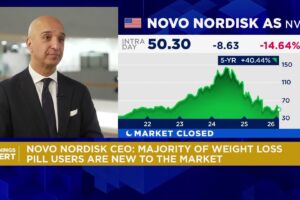
Bill Gross says the dominance of Amazon, Microsoft and other technology giants throughout this year’s stock-market slump and recovery won’t last if inflation-adjusted bond yields rebound from their record low.
In his latest market outlook, the former head and founder of bond fund manager Pimco argued the tight-knit relationship between inflation-adjusted yields and the performance of stocks with rapidly expanding earnings was a key reason why highflying tech companies and other growth stocks extended their dominance over value shares in 2020.
“Would I bet the farm on this correlation in the future? Well, maybe 40 acres worth,” said Gross, who has since retired after ending his money management career at Janus Henderson.
He says the sharp decline in inflation-adjusted yields, as derived from trading in Treasury inflation-protected securities, has begun to stretch credulity. A rebound in the “real” yield could thus furnish the opportunity for value investors to shine again.
Investors had trumpeted hopes earlier this year that value stocks, or businesses trading below their intrinsic worth, would finally trump growth stocks but that has not happened.
Growth companies in the S&P 500 benchmark index SPX, -0.93% have gained 18% year-to-date, versus a 16.5% decline for the index’s value constituents, FactSet data show. The outperformance of growth stocks has also driven a more than 20% gain for the Nasdaq Composite COMP, -2.13% over the same stretch.
Opinion: What’s happened to value stocks?
Gross says the difference in the returns between the two sectors this year largely comes down to how a slump in inflation-adjusted yields tended to bolster the price of growth shares more so than value.
Gross says the near 2 percentage point drop in the 10-year real yield since it peaked at around 1.15% since 2018 could, for example, explain more than half the rise in Microsoft Corp.’s shares MSFT, -3.08% over the past few years.
“When real rates decline like they have over the past few years, the discounting of current dividends skyrockets the price,” he said.
But for value stocks, this discounting effect is much less pronounced because the growth of their dividends was highly dependent on the performance of the economy and would thus offset the benefits of a lower inflation-adjusted yield.
It’s not clear if growth stocks can continue to depend on the persistent decline in real yields, said Gross, who suggested the rally in Treasury inflation-protected securities had “seen their best days.”
He noted the 10-year real yield stood at a record negative 0.80%, tying with inflation-adjusted rates in Europe and Japan.
For that reason, “value stocks, versus growth stocks, should be an investor’s preference in the near-term future,” he said.









